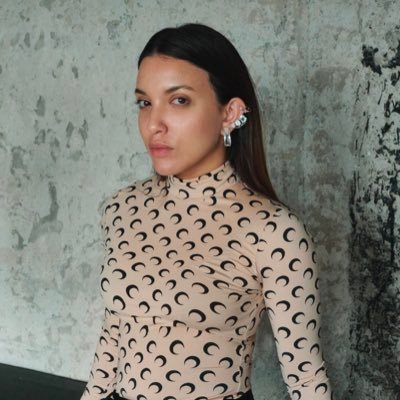17 February 2022 |
Fashion’s blockchain evolution with Marjorie Hernandez
By

Blockchain technology has influenced fintech, pushing companies to adopt blockchain to generate new revenue, deliver process efficiency, improve end-user experience and reduce friction in operations.
Blockchain-powered crypto assets, NFTs, and web3 continue to be a part of daily discussions. The finance industry has come to terms with blockchain creating a fintech ecosystem that revolutionizes finance completely.
That cultural influence of fintech and blockchain is trickling into an industry that’s even more reluctant to adopt blockchain technology than some traditional financial institutions — the world of fashion.
That’s why I traveled (on the iciest NY day) from my cozy brownstone in Brooklyn to the Mercer Hotel in SoHo to have an oat milk cappuccino with Marjorie Hernandez, co-founder and managing director of blockchain infrastructure Lukso. Marjorie is also the co-founder of Dematerialised, a digital marketplace for fashion NFTs powered by Lukso.
From a background in architecture to running EY’s Innovation Lab in Berlin to developing blockchain infrastructure to cultivate change in fashion, Marjorie is doing everything she can to help the physically obsessed world of fashion understand that our world is on a digital trajectory. This evolution is not only good for consumers but businesses.
Enjoy my conversation (an edited version for clarity and brevity) with Marjorie.
Nicole Casperson: One of the coolest things I’ve read about Lukso is the digitizing of fashion icon Karl Lagerfeld’s collection of photographs to live on the Lukso blockchain. What are other ways you’re communicating blockchain uses?
MH: [Lagerfeld] is still a work in progress because the archive is massive. The best analogy for people who are reluctant to the digitization of physical goods is money. Money today has nothing to do with any physical asset. No one uses cash anymore. So I think the fact that we are very fine with dematerializing the core means of transaction in our economy but not a piece of art or clothing is an archaic belief.
We are transitioning to understand, as we continue to evolve as humans, that value is not the attachment of physicality.
NC: Totally agree. How do we digitize clothing in the same way we do money?
MH: First is for creators to authenticate their physical product by giving it a chain identity. The next step to that is creating a virtual entity for your physical product. Lukso is meant to provide the tools and infrastructure for that.
One thing that we can assume with certainty, is that we are experiencing dematerialization. NFTs tell us that our lives are becoming more digitized and virtualized because we’re spending more time in environments where we want to create our virtual persona just as much as we want to develop our physical self.
With Dematerialised, the intent is to be the marketplace to offer consumer goods like a fashion product or accessory that only exists in that environment.
NC: I am 100% for anything that opens up equity or brings equity to financial systems or any system. That feels like the entire idea of bringing blockchain tech to fashion.
MH: We know when something is digitized it becomes at least closer to being democratized. It comes closer to having accessibility by a larger group of people. One of the things that we are most excited about is the notion that a lot of people will be able to participate in the economy, a lot of people will be able to access the market, not only as a consumer but also as a creator.
Another thing is this technology is agnostic to your location and your physicality. So in the real world, you are always having to deal with whatever prejudice, a stereotype. As a digital creator, you don’t deal with that anymore.
We’re dealing with cultural biases all the time. That’s a more difficult thing to shake off. I’m a Latina woman, and of course, my life would’ve been easier if I was a German man. So blockchain is giving the power to curate the persona that can separate yourself from those cultural biases: Where you live, where you are from, what you wear, whether you’re young or old.
NC: Your background is in architecture and, you probably get this question all the time, but why fashion?
MH: We have a convergence happening in culture. It’s very difficult to have a clear line between things like politics or finances. The beautiful thing about fashion is that it’s the most widespread expression. Everybody uses it — whether you know it or not. So while I’m in fashion, my bigger thought is to revolutionize the creative economy at large.
NC: What are you excited about next?
MH: I’m excited about normalization. Like when nobody cares because blockchain has become normal. We don’t get excited anymore just because someone uses the Internet. When we get to that level of normalization — that excites me.